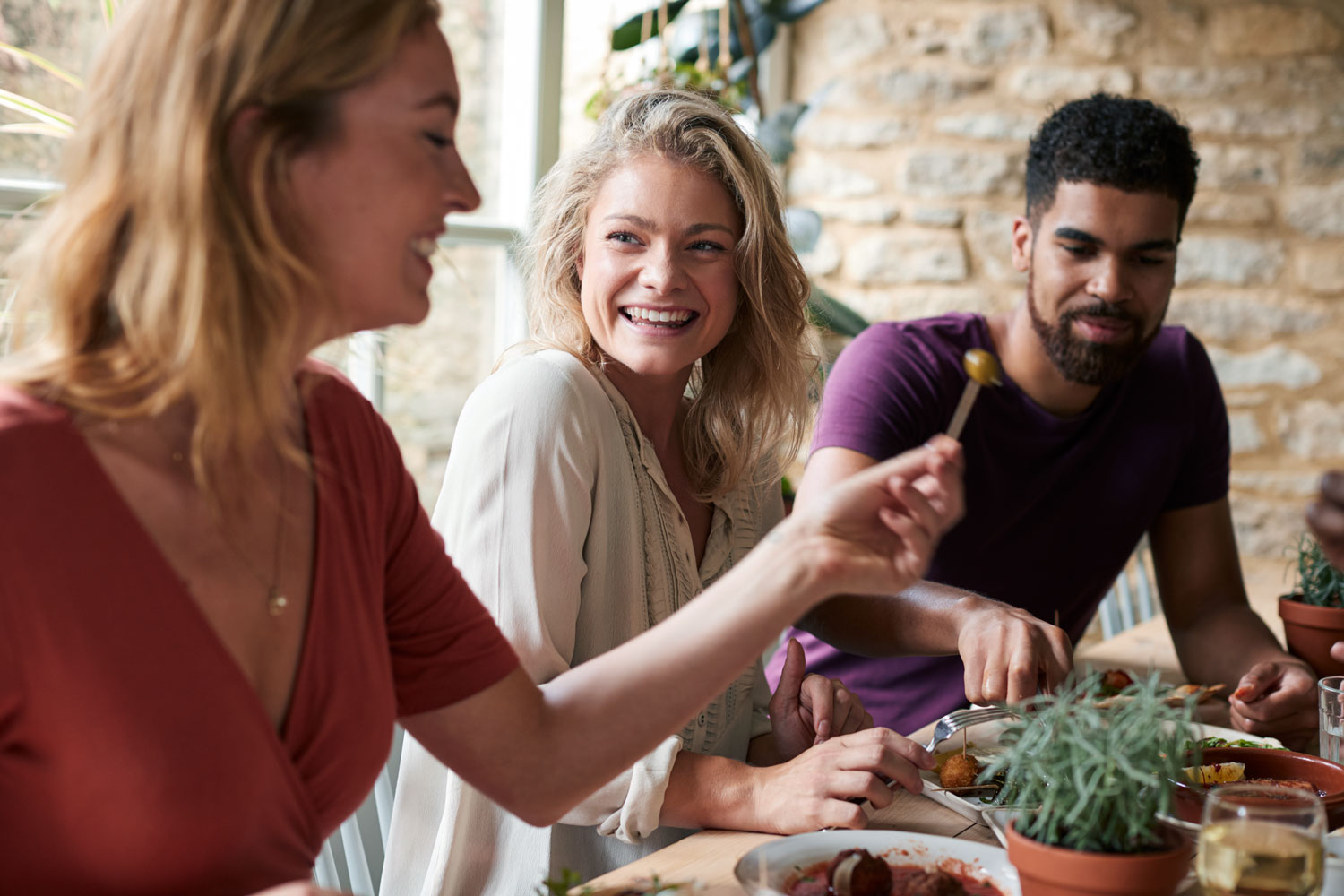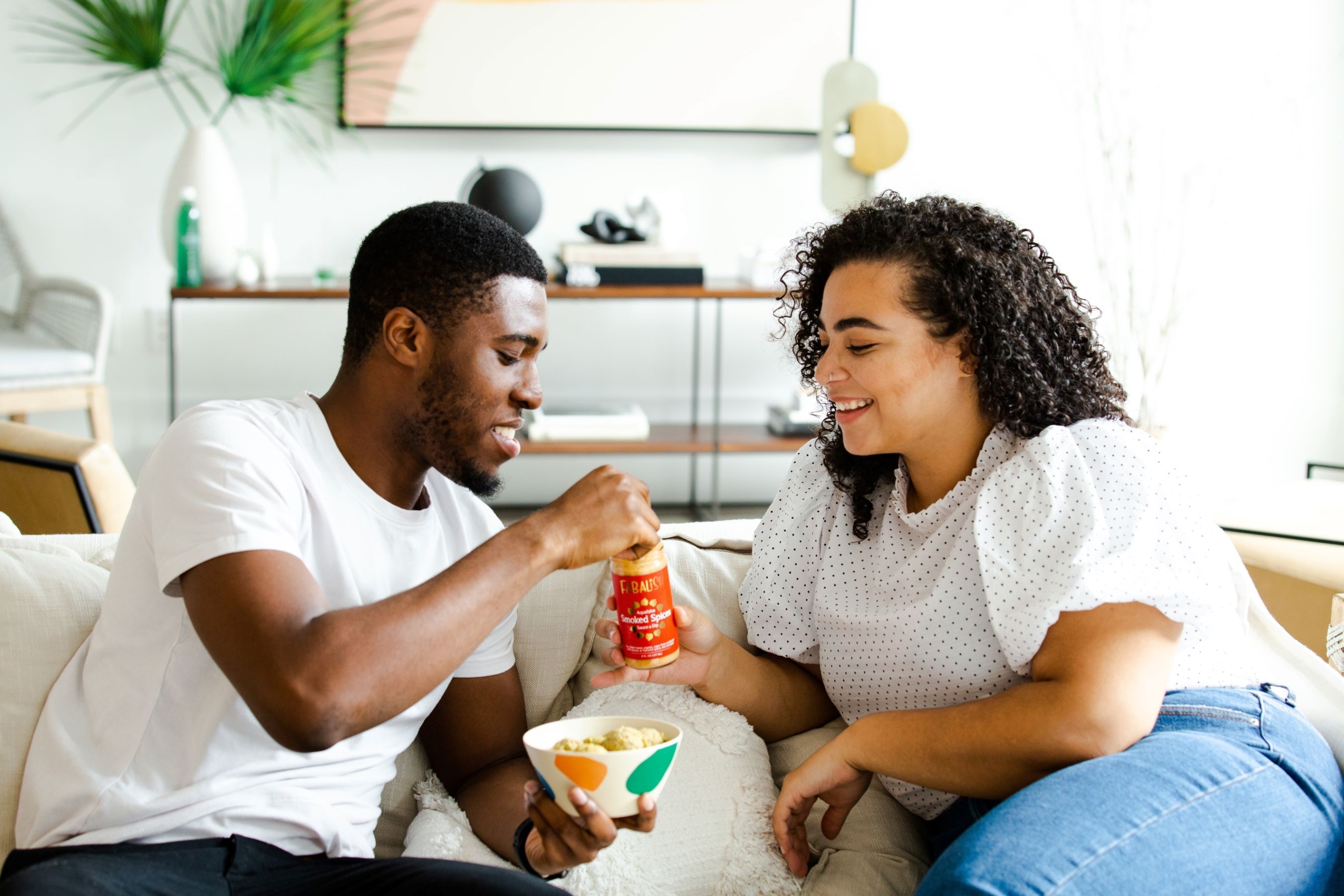Sharing meals – it’s not just about what we eat!
Over the past couple of weeks, as restrictions have started to ease in Switzerland, I have been thinking more about what it means to share a meal. Although I’ve been able to share meals with my husband and family here, missing meals with cherished friends has made me realise how important this is for me.
And judging by the number of people who have been braving our cold, wet spring and meeting to eat and spend time together outside a café or restaurant at lunchtime or after work, it’s clearly important for a lot of other people too.
From an evolutionary anthropology perspective, eating together has a long tradition. Family meals are widespread and commonplace in all cultures, and inviting friends or visitors to share a meal is important in most societies. Providing a meal for guests is regarded in many cultures as a sign of both hospitality and an important way of getting to know people. Even now, in times when it’s so easy to pick up something to eat “on the run”, sitting down to eat with family and friends continues to be seen as important and desirable.
Why is it so important for us to share a meal?
Why is it so important for us to share a meal? Sure, there is the practical convenience of bulk cooking when eating at home, but eating together typically takes more time than eating alone, so what makes sharing a meal together so important? What benefits does it have? Well, two reasons why sharing a meal is beneficial for us are:
- It helps make and reinforce friendships and family relationships
- It provides us with health benefits as individuals
Eating together strengthens family connections
Family meals provide a way of communicating with one another on a daily basis, helping to strengthen family connections. Enjoying a meal together works kind of like a social glue with conversation and laughter contributing to a sense of family unity, identity, closeness and belonging. Family meals can be a way of carrying on valued family traditions, like enjoying a favourite dish on someone’s birthday or going to a favourite place to eat together on special occasions. They are also an opportunity to transmit the values and attitudes of a family from one generation to the next. Children learn from parents and grandparents about what values are important to the family during mealtime conversations. Family meals are also a wonderful way to maintain a family’s cultural and ethnic heritage as food often reflects the unique cultural traditions or ethnic background of the family.
Eating together benefits our physical and emotional well-being
Friendships formed with others are linked to important health benefits, although the significance of these has only recently been appreciated. The size and quality of our social network is linked to our physical health, emotional wellbeing and happiness. A large 2010 meta-analysis found that the influence of social relationships on the risk of dying is similar to quitting smoking and even exceeds other well-accepted risk factors for mortality like being physically inactive. A 2017 survey found people who eat socially are more likely to feel better about themselves and to have a wider social network capable of providing social and emotional support. They tend to feel happier and are more satisfied with life, more trusting of others, more engaged with their local communities, and have more friends they can depend on for social and emotional support when they need it.
It’s not just what we eat, but how we eat that’s important
We see the positive effects on health of sharing and enjoying a meal together in some countries like Japan and areas of the Mediterranean where the traditional way of life is still practiced. Here, people place great importance on enjoying and savouring meals with others. They spend a lot of time eating together, relishing in the experience rather than just eating and getting on with their day. They take pleasure and enjoyment in sharing a meal together. Sharing a meal is seen as an opportunity to connect with others, to share in the joys and challenges of the day, to practice listening, feel heard, learn something new, and engage in storytelling. Their attitude to eating, food and its role in the community explains (at least in part) why the traditional way of life in these countries is associated with better and longer health. In contrast, many of us tend to worry more about what we eat than how we eat. But given the many health benefits of sitting down to and enjoying a meal together, maybe we need to focus a little more on how we eat and spend more time enjoying a meal with family and friends, happy in the knowledge that this benefits our physical and emotional health?
Ready to take the next step? Contact me and request a complimentary call to find out more about Intuitive Eating and how it can help you truly nourish yourself – body, mind and soul.






